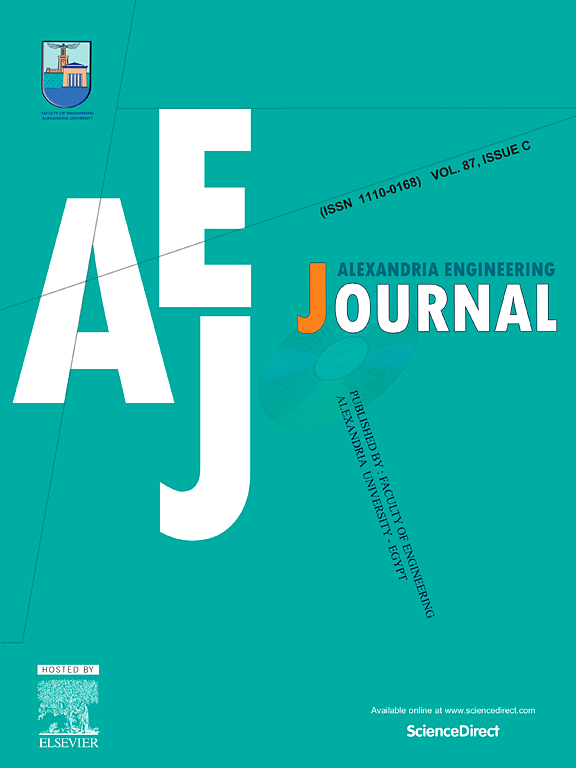智能模糊组态通道:一种新的复杂系统建模自整定框架
IF 6.8
2区 工程技术
Q1 ENGINEERING, MULTIDISCIPLINARY
引用次数: 0
摘要
为了提高随机配置网络的模糊推理能力,提出了一种基于模糊随机配置网络的神经模糊模型。与传统的scn不同,f - scn用Takagi-Sugeno (T-S)模糊推理模块取代隐藏层,使其能够处理模糊输入数据,生成与输出层连接的有意义的模糊规则,并更有效地执行推理。一个关键的挑战是建立一个确保健壮建模性能的框架。为了解决这个问题,我们引入了带有混合学习算法(HL-SOFSCN)的自组织模糊随机配置网络(SO-FSCNs)用于非线性系统建模。此外,我们提出了一种基于网络知识和规则触发强度来细化模糊规则的生长和修剪生产方法。采用适当初始参数的纠错算法提高模糊规则的学习性能,同时消除低激发强度的冗余规则,保持结构紧凑。此外,我们开发了一种混合学习算法,该算法将参数调整的最小二乘法与增强的二阶优化方法相结合,分别处理线性和非线性参数以提高学习效率。该模型使用人工数据集进行了验证,表明与其他模型相比,SCNs具有令人满意的预测精度。本文章由计算机程序翻译,如有差异,请以英文原文为准。
Intelligent fuzzy configuration channels: A novel self-tuning framework for complex system modeling
To enhance the fuzzy inference capability of Stochastic Configuration Networks (SCNs), we propose a new neuro-fuzzy model based on Fuzzy Stochastic Configuration Networks (F-SCNs). Unlike traditional SCNs, F-SCNs replace hidden layers with Takagi–Sugeno (T–S) fuzzy inference modules, enabling them to process fuzzy input data, generate meaningful fuzzy rules connected to the output layer and perform reasoning more effectively. A key challenge is establishing a framework that ensures robust modeling performance. To address this, we introduce Self-Organizing Fuzzy Stochastic Configuration Networks (SO-FSCNs) with a Hybrid Learning Algorithm (HL-SOFSCN) for nonlinear system modeling. Additionally, we propose a growing-and-pruning productive approach that refines fuzzy rules based on network knowledge and rule firing intensity. The learning performance of fuzzy rules is improved using error correction algorithms with appropriate initial parameters, while redundant rules with low firing strength are eliminated to maintain a compact structure. Furthermore, we develop a hybrid learning algorithm that integrates a least squares method for parameter tuning with an enhanced second-order optimization approach, treating linear and nonlinear parameters separately to improve learning efficiency. The model is validated using artificial datasets, demonstrating that SCNs achieve a satisfactory predictive accuracy compared to alternative models.
求助全文
通过发布文献求助,成功后即可免费获取论文全文。
去求助
来源期刊

alexandria engineering journal
Engineering-General Engineering
CiteScore
11.20
自引率
4.40%
发文量
1015
审稿时长
43 days
期刊介绍:
Alexandria Engineering Journal is an international journal devoted to publishing high quality papers in the field of engineering and applied science. Alexandria Engineering Journal is cited in the Engineering Information Services (EIS) and the Chemical Abstracts (CA). The papers published in Alexandria Engineering Journal are grouped into five sections, according to the following classification:
• Mechanical, Production, Marine and Textile Engineering
• Electrical Engineering, Computer Science and Nuclear Engineering
• Civil and Architecture Engineering
• Chemical Engineering and Applied Sciences
• Environmental Engineering
 求助内容:
求助内容: 应助结果提醒方式:
应助结果提醒方式:


